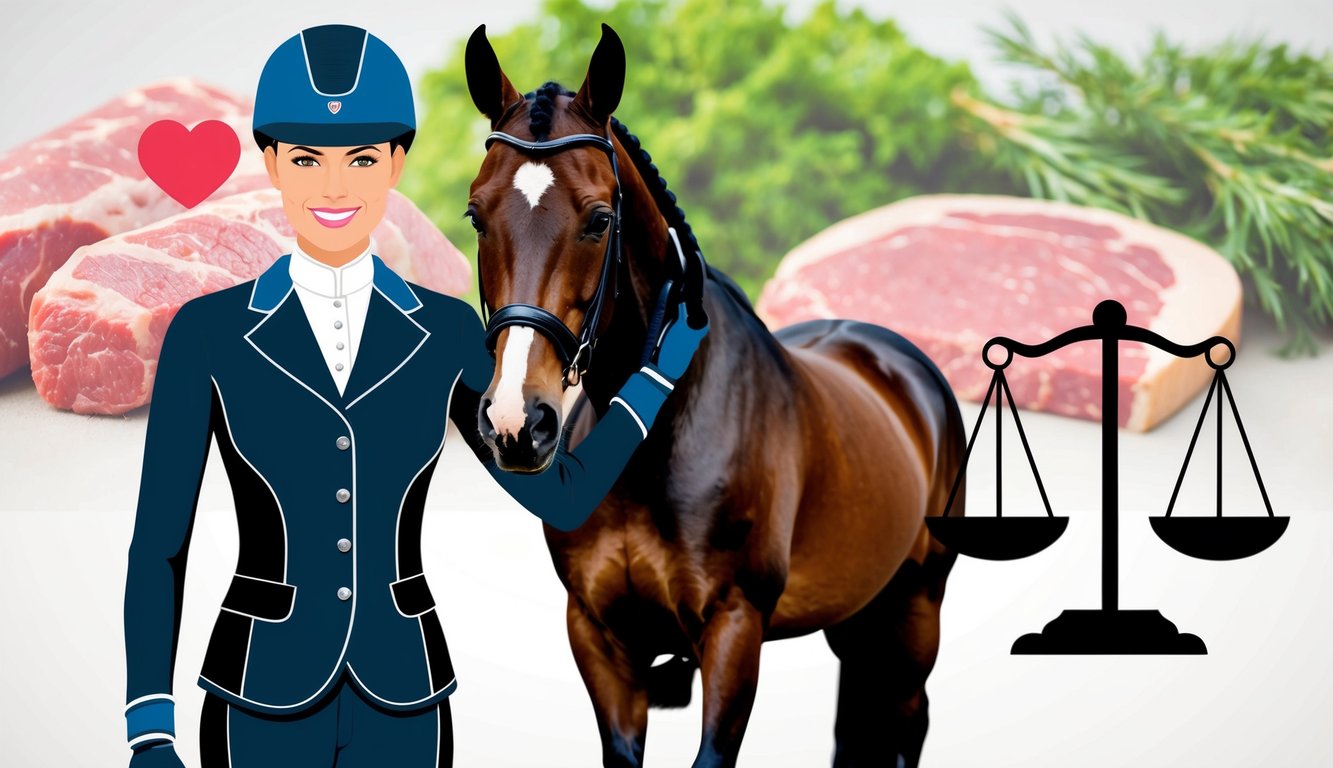Equestrians seeking to optimize their performance and manage their weight are increasingly exploring unconventional dietary approaches. The carnivore diet, which focuses exclusively on animal products, has gained attention in various athletic circles, including the equestrian community. This eating plan eliminates all plant-based foods and relies on meat, fish, eggs, and some dairy to provide necessary nutrients and energy.
For riders, the carnivore diet may offer potential benefits such as weight management and improved cognitive function. Jockeys, in particular, face strict weight limits and may find the diet’s focus on protein-rich foods helpful in maintaining lean muscle mass while reducing body fat. However, the physically demanding nature of horseback riding requires careful consideration of nutritional needs.
Equestrians contemplating the carnivore diet should weigh its potential advantages against the importance of a balanced nutritional intake. While some riders report increased energy and mental clarity, the long-term effects and suitability for equestrian sports remain topics of ongoing discussion in the nutrition and athletic communities.
Understanding the Carnivore Diet
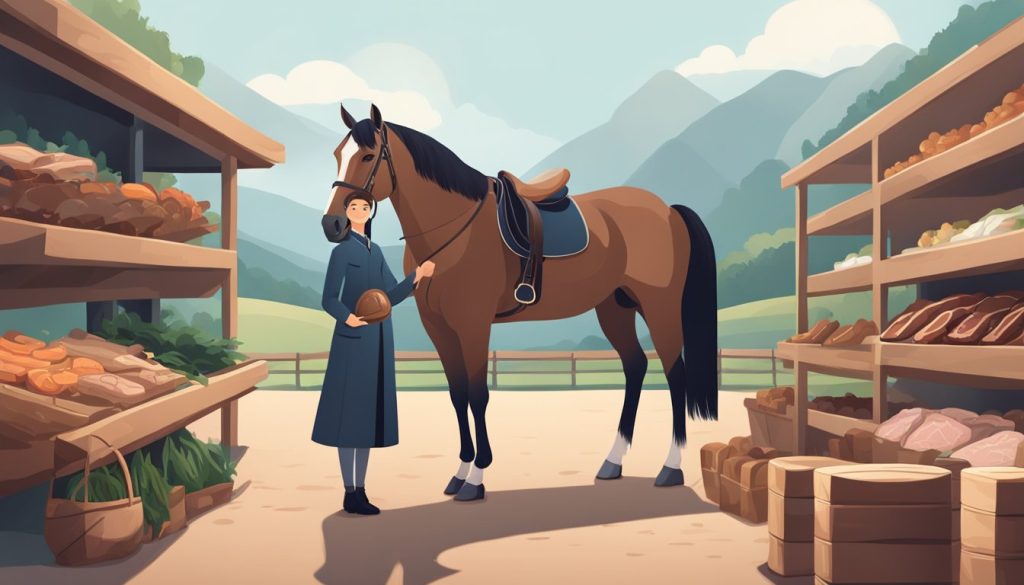
The carnivore diet is a highly restrictive eating plan centered on animal-based foods. It eliminates all plant foods, focusing solely on meat, fish, eggs, and sometimes dairy products.
Fundamentals of the Carnivore Diet
The carnivore diet, also known as the meat-only diet, is based on the premise that animal products provide all necessary nutrients for optimal health. Proponents argue it can lead to improved gut health, reduced inflammation, and better brain function.
This diet typically includes:
- Red meat
- Poultry
- Fish and seafood
- Eggs
- Some dairy products (optional)
All plant-based foods are excluded, including fruits, vegetables, grains, legumes, nuts, and seeds. The diet aims to induce a state of ketosis, where the body burns fat for fuel instead of carbohydrates.
Comparison with Paleo and Keto Diets
The carnivore diet shares similarities with both the paleo and keto diets but takes their principles to an extreme.
Paleo diet:
- Includes meat, fish, eggs, fruits, vegetables, nuts, and seeds
- Excludes processed foods, grains, and dairy
Keto diet:
- High in fat, moderate in protein, very low in carbs
- Allows some plant-based foods
Carnivore diet:
- Excludes all plant foods
- Focuses solely on animal products
While all three diets aim to reduce processed foods and sugars, the carnivore diet is the most restrictive, potentially leading to nutrient deficiencies if not carefully planned.
The Role of Shawn Baker in Popularizing the Diet
Dr. Shawn Baker, an orthopedic surgeon and former athlete, has been a key figure in promoting the carnivore diet. He gained attention through social media and his book “The Carnivore Diet,” published in 2019.
Baker’s personal experiences and claims of improved health on the diet have attracted many followers. He advocates for the diet’s potential benefits, including:
- Weight loss
- Increased energy
- Improved mental clarity
- Better athletic performance
However, it’s important to note that Baker’s medical license was revoked in 2017 due to concerns about his competency. Many nutrition experts express skepticism about the long-term safety and efficacy of the carnivore diet.
Health Benefits and Risks
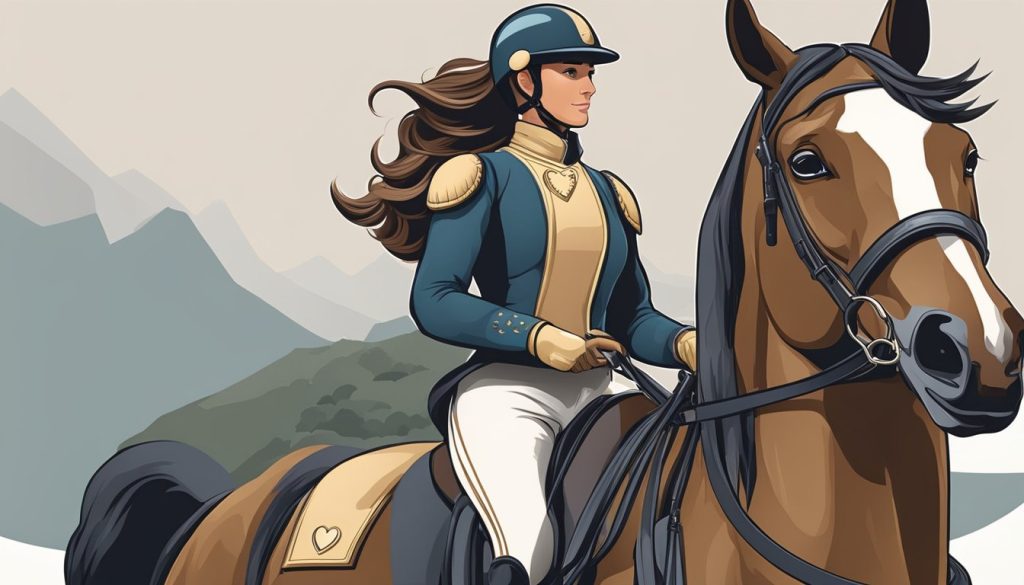
The carnivore diet presents potential advantages and risks for equestrians. Riders must carefully weigh these factors when considering this eating approach.
Potential Advantages for Overall Health
Some equestrians report increased energy levels and improved mental clarity on the carnivore diet. Weight loss may occur due to the elimination of carbohydrates and focus on protein-rich foods.
Proponents claim reduced inflammation and better recovery from intense riding sessions. The diet’s emphasis on nutrient-dense animal products may support muscle repair and bone health.
Improved blood sugar control is another potential benefit, as the absence of carbohydrates can stabilize insulin levels. This could lead to more consistent energy throughout long rides or competitions.
Risks and Considerations
Nutrient deficiencies are a significant concern on the carnivore diet. Eliminating plant foods removes important sources of fiber, vitamins, and antioxidants. Equestrians may need careful supplementation to avoid health issues.
The high intake of saturated fats and cholesterol may increase the risk of heart disease in some individuals. Regular health check-ups are crucial to monitor cardiovascular markers.
Digestive problems can arise due to the lack of fiber. This may affect comfort during riding and overall gastrointestinal health.
The restrictive nature of the diet can make social situations and travel challenging for equestrians. This may impact adherence and enjoyment of the sport’s social aspects.
Long-term effects of the carnivore diet remain unclear due to limited research. Riders should consult healthcare professionals before making drastic dietary changes.
Nutritional Aspects of the Diet

The carnivore diet for equestrians focuses on animal-based foods and excludes plant-based options. This approach has implications for nutrient intake and requires careful consideration to ensure adequate nutrition.
Macronutrients and Micronutrients
The carnivore diet provides abundant protein and fat but lacks carbohydrates. Protein supports muscle maintenance and repair, crucial for equestrians. Fat serves as an energy source and aids hormone production.
Essential vitamins and minerals are present in animal products. B vitamins, particularly B12, are plentiful in meat. Iron, zinc, and selenium are well-absorbed from animal sources.
Calcium intake may be sufficient if dairy is included. Vitamin C is lower compared to plant-based diets but can be found in organ meats.
Addressing Nutrient Deficiencies
Potential nutrient gaps in a carnivore diet require attention. Fiber, typically from plants, is absent, which may affect digestive health.
Vitamin E and vitamin K are limited in animal products. Equestrians can consider supplements or specific food choices to address these deficiencies.
Magnesium and potassium may be lower without plant sources. Careful selection of animal products can help meet these needs.
Importance of Organ Meats and Seafood
Organ meats are nutrient powerhouses in the carnivore diet. Liver provides vitamin A, folate, and copper. Heart is rich in CoQ10 and B vitamins.
Seafood offers essential omega-3 fatty acids, beneficial for joint health and inflammation reduction. Fatty fish like salmon and sardines are excellent choices.
Shellfish contribute important minerals. Oysters are high in zinc, while mussels provide manganese and selenium.
Incorporating a variety of organ meats and seafood helps ensure a more complete nutritional profile for equestrians following a carnivore diet.
Carnivore Diet for Equestrian Athletes
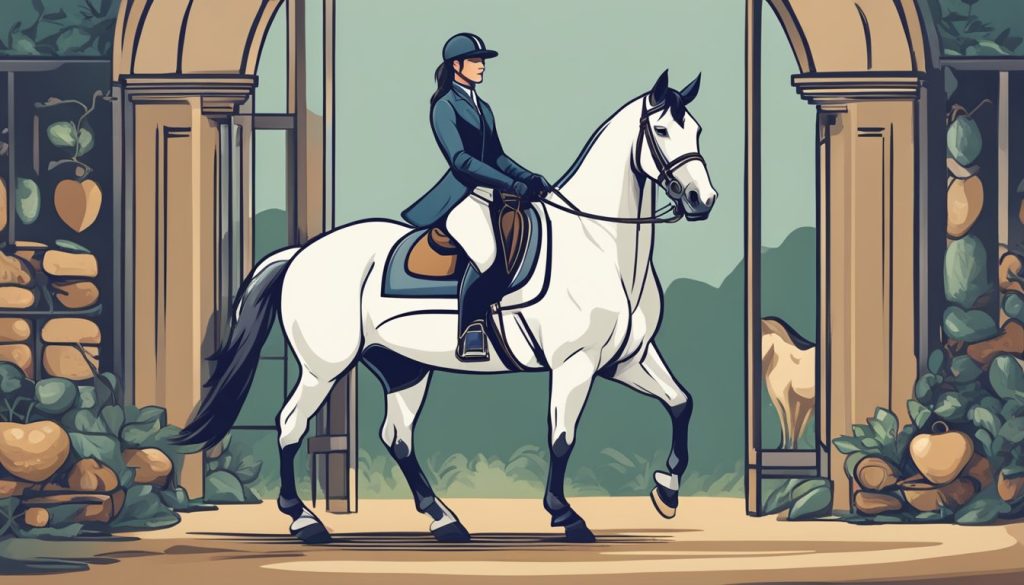
The carnivore diet can offer unique benefits for equestrian athletes, particularly in terms of energy levels and muscle health. This eating approach focuses on animal-based foods to support the physical demands of horseback riding and competition.
Energy and Performance Benefits
Equestrian athletes following a carnivore diet may experience steady energy levels throughout the day. The high-fat content of animal foods provides a consistent fuel source, potentially reducing energy crashes common with carbohydrate-heavy diets.
Improved mental clarity is another reported benefit. This can be crucial for riders who need to make split-second decisions during competitions. The diet’s low carbohydrate nature may also lead to decreased inflammation, which could enhance overall performance.
Some equestrians find that adapting to a carnivore diet results in better endurance during long rides. The body’s shift to using fat for fuel can support sustained energy output over extended periods.
Recovery and Muscle Health
Protein intake is a key factor in muscle recovery for equestrian athletes. The carnivore diet naturally provides ample high-quality protein, supporting muscle repair and growth after intense riding sessions.
The diet’s emphasis on nutrient-dense animal foods may accelerate recovery times. Essential amino acids found in meat can aid in reducing muscle soreness and promoting faster healing of minor injuries.
Equestrians may also benefit from improved joint health due to the collagen content in animal products. This can be particularly beneficial for riders who experience joint stress from repetitive motions.
Electrolyte balance is crucial for muscle function. Many animal foods are rich in essential minerals like potassium and magnesium, which can help maintain proper hydration and prevent cramping during long rides.
Diet Implementation and Strategies
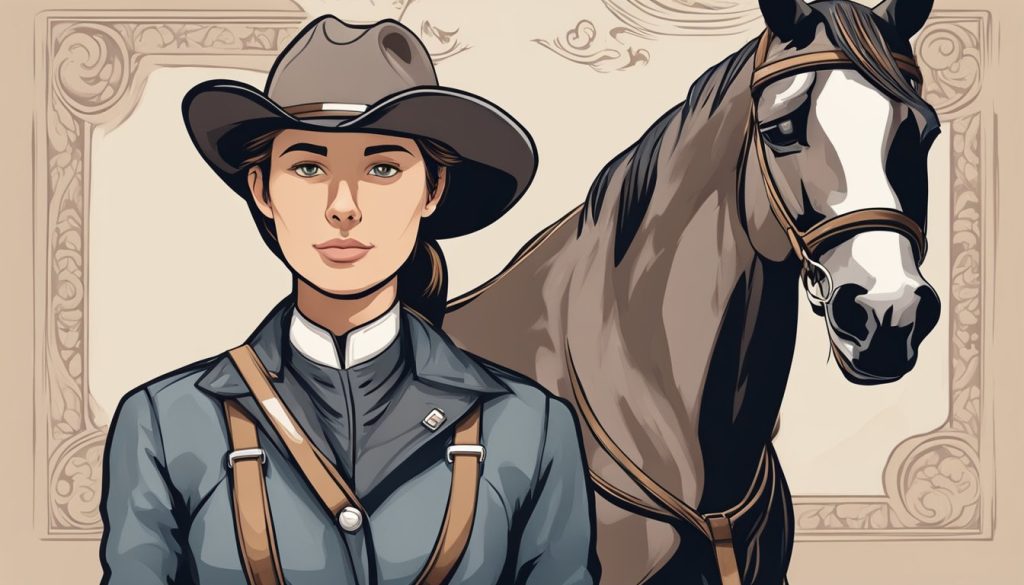
Implementing a carnivore diet for equestrians requires careful planning and strategic approaches. Proper meal planning, hydration, and food selection are key components for success.
Creating a Sustainable Carnivore Meal Plan
Equestrians need a meal plan that supports their high-energy lifestyle. Focus on nutrient-dense animal products like beef, lamb, and fatty fish. Include organ meats for essential vitamins and minerals.
Consider the following meal structure:
- Breakfast: Eggs and bacon
- Lunch: Grilled steak with bone broth
- Dinner: Salmon with butter
Incorporate variety to prevent boredom. Rotate between different meat cuts and cooking methods. Experiment with seasonings to add flavor without compromising the diet’s principles.
Hydration and Electrolyte Balance
Proper hydration is crucial for equestrians on a carnivore diet. Water intake should increase to compensate for the lack of water-rich plant foods.
Aim for 2-3 liters of water daily. Add a pinch of salt to water for electrolyte balance. Bone broth can provide additional minerals and hydration.
Electrolyte supplements may be necessary, especially during intense training or hot weather. Monitor urine color as an indicator of hydration status.
Grocery Shopping and Food Selection
Quality is paramount when selecting animal products. Opt for grass-fed and pasture-raised meats when possible. These contain higher levels of beneficial nutrients.
Focus on:
- Beef: Ribeye, sirloin, ground beef
- Poultry: Chicken thighs, turkey
- Fish: Salmon, sardines, mackerel
- Eggs: Free-range or pasture-raised
Shop at local butchers or farmers’ markets for fresher options. Consider bulk purchases to save money. Invest in a good freezer for storage.
Read labels carefully to avoid hidden plant-based ingredients or additives. Choose full-fat dairy if included in the diet plan.
Potential Impacts on Specific Health Conditions
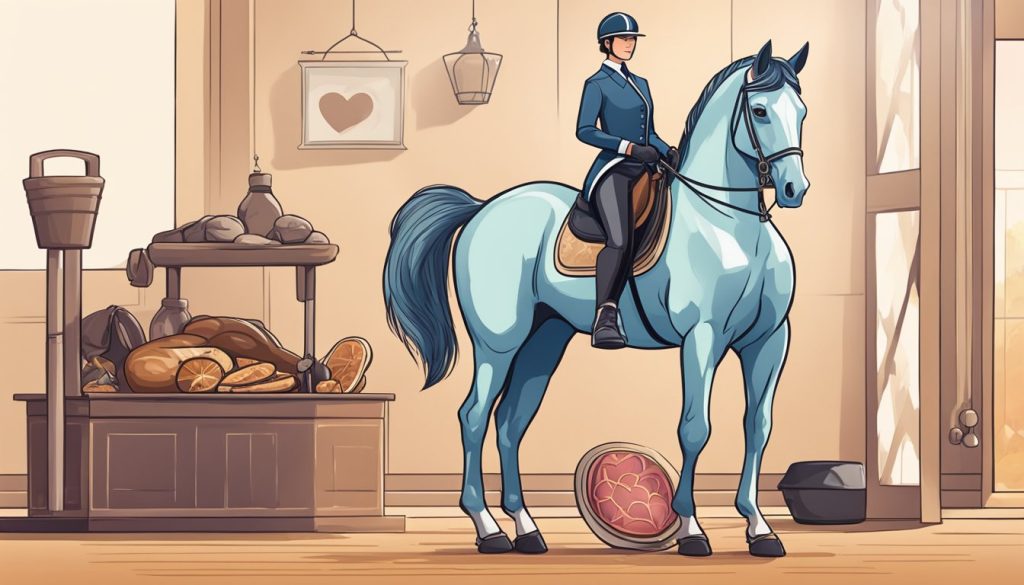
The carnivore diet may affect various health conditions in equestrians. Its high protein and fat content, coupled with the absence of plant-based foods, can influence weight, metabolism, and overall well-being.
Influence on Weight Management and Diabetes
Adopting a carnivore diet often leads to initial weight loss in equestrians. The high protein intake promotes satiety, potentially reducing overall calorie consumption. This can be beneficial for riders aiming to maintain an optimal weight for competition.
For those with type 2 diabetes, the diet’s low carbohydrate nature may help stabilize blood sugar levels. Some equestrians report improved insulin sensitivity and reduced medication needs.
However, long-term effects on metabolism remain unclear. Riders should monitor their weight and energy levels closely, as extreme dietary changes can impact performance.
Effects on Digestive and Cardiovascular Health
Digestive health can be significantly affected by the carnivore diet. Some equestrians experience reduced bloating and gastrointestinal discomfort due to the elimination of plant-based foods.
However, the lack of fiber may lead to constipation in some riders. Adequate hydration becomes crucial to maintain digestive regularity.
Cardiovascular health implications are mixed. The high saturated fat content may raise cholesterol levels in some individuals. Conversely, others report improved lipid profiles.
Equestrians with a history of heart disease should consult their healthcare providers before adopting this diet.
Mental Health Outcomes
The carnivore diet’s impact on mental health in equestrians is an area of ongoing research. Some riders report improved mood and reduced anxiety, possibly due to the elimination of processed foods and sugars.
The diet’s high fat content may influence brain function, as the brain relies heavily on fats for optimal performance. Some equestrians note enhanced mental clarity and focus during training and competition.
However, the restrictive nature of the diet can lead to social isolation and food-related stress for some riders. This may negatively impact overall mental well-being and should be carefully considered.
Challenges and Solutions

Adopting a carnivore diet as an equestrian presents unique hurdles. Addressing these challenges is crucial for maintaining the diet while pursuing equestrian activities.
Dealing with Cravings and Social Settings
Cravings for non-carnivore foods can be intense, especially in social situations. Equestrians may find it difficult to resist temptations at horse shows or barn gatherings.
To combat cravings, focus on nutrient-dense meats that satisfy hunger. Bring carnivore-friendly snacks to events, such as jerky or hard-boiled eggs.
When dining out, communicate dietary needs in advance. Many restaurants can accommodate by providing plain grilled meats.
Plan ahead for social events. Eat a satisfying meal before attending, or offer to bring a meat dish to share.
Stay hydrated, as thirst can sometimes be mistaken for food cravings.
Coping with Transition Symptoms
Initial adaptation to a carnivore diet may cause temporary discomfort. Some equestrians experience “keto flu” symptoms like fatigue, headaches, and irritability.
These symptoms typically subside within a few weeks. To minimize discomfort:
- Increase salt intake to maintain electrolyte balance
- Stay well-hydrated
- Get adequate rest, especially during training
- Gradually transition to carnivore eating over several weeks
Digestive changes are common. Constipation may occur due to reduced fiber intake. Combat this by:
- Consuming bone broth
- Staying hydrated
- Considering magnesium supplements if needed
Mental clarity often improves after the adaptation period. This can benefit equestrians in their training and competition focus.
